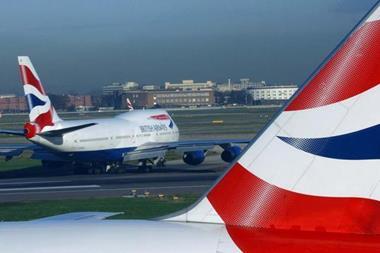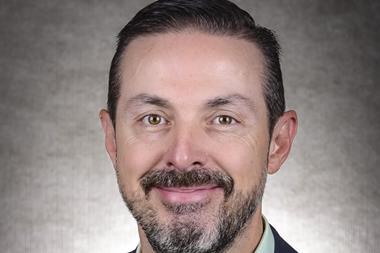Has the world become a more dangerous place for the traveller since September 11? Probably not, but what has changed since that date is a heightening in awareness of terrorism, and this in turn has led to a general impression of increased security risk.
The focus on terrorism has distorted the reality of travel risk, leading some people to treat Islamic countries as one hostile, homogenous entity. Certainly, there are countries, such as Saudi Arabia and Pakistan, where there is considerable popular support for the actions of the September 11 terrorists and where travellers need to exercise care and discretion, but the extreme policy taken by some travellers of avoiding all Islamic countries does not bear serious scrutiny. Countries such as the United Arab Emirates continue to provide some of the safest conditions in the world for foreign travellers.
The danger of this obsession with terrorism is that it can obscure the more pertinent and ever-present risks that travellers face. In the great majority of countries, it is street crime that poses the greatest threat to foreigners, particularly if they are conspicuous. In general, there are few people who nurture the intention of carrying out terrorist acts, and even fewer who actually have the capability. Yet anyone can become a common criminal. This is the threat the travellers need to address from the outset. At the very least, they need to be aware of what will face them in the arrivals hall of the airport, how they will get safely from the airport to the hotel, and the level of security they need to adopt when outside the hotel.
Business travellers are especially at risk, particularly if they are visiting a country for the first time. Typically they will not have had time to prepare properly, or may simply believe that their regular travelling procedures will hold good for every country they visit. They may also be lulled into a false sense of security by their hotel which, in many cases, will be totally unrepresentative of the country. Stepping from the comfort of the cocktail lounge onto the teeming streets outside represents a huge change in risk. Quite simply, plush hotels in developing countries are a magnet for street criminals, and foreigners need to exercise particular care in the surrounding area.
A certain level of awareness is important when visiting nearly all countries, but travellers can only be genuinely prepared if they are aware of the nature and level of the threat that they face. This is where careful analysis of security trends is a valuable asset. In Colombia, for instance, kidnappers specifically target foreigners whereas in Mexico, with equally high levels of kidnap, kidnappers tend to prey on locals.
The majority of crime against travellers occurs when they have dropped their guard or have put themselves into vulnerable situations. In many countries, travellers leaving a nightclub in the early hours and believing, that they can walk back to their hotel are robberies waiting to happen. Travellers naturally have the right to be concerned about terrorism, but their safety is more in their own hands than they may imagine.
Jake Stratton is director of Control Risks information services, Tel: 020 7222 1552
KIDNAPLatin American countries, and Colombia in particular (with an estimated 4,000 abductions annually), are considered the most hazardous place in the world for kidnappings, says the Inkerman Group. Business magazine Fortune has dubbed the Philippines the 'kidnap capital of Asia' as a result of the recent kidnapping epidemic that has blighted the region. More surprising, perhaps, is the news that both Italy and Spain appear in the list of the top ten most dangerous countries for white-collar expatriates, as far as kidnapping is concerned.
Even in the UK, the crime of kidnapping is reaching record levels Businessman Semeon Agadjanov was kidnapped, held hostage for a week and tortured by a Russian mafia gang, not in a lawless region of Chechnya or Bosnia but in Beckenham in Kent. After the conviction of his abductors in August, Detective Chief Superintendent John Coles, head of Scotland Yard's Organised Crime Group, revealed that the number of kidnaps in London was now running at twice the figure for the previous year. In 1997 there were just four recorded kidnaps; this year police expect that figure to rise to 70 or 80 (source: Yahoo News).
What can you do to minimise the risks? Inkerman advocates personal awareness training courses, covering such subjects as:
www.inkerman.com
HOT SPOTS
The Travel Advice Unit of the Foreign & Commonwealth Office lists those countries and regions where travel may be dangerous. Currently it advises against all travel to Afghanistan, Burundi, Central African Republic, Republic of Congo, Iraq and Somalia and to some parts of Albania, Azerbaijan, Colombia, Comoros, Ecuador, Eritrea, Ethiopia, Guinea, India, Indonesia, Israel and the Palestinian Authority, Kyrgyzstan, Liberia, Malaysia, Mozambique, Namibia, Nepal, Pakistan, Russian Federation, Sri Lanka, Uganda and Venezuela. It also lists those countries and areas to which it recommends that only essential trips should be made. http://www.fco.gov.uk/travel/countryadvice.asp
COMPREHENSIVE TRAVEL TIPS
The UK Institution of Occupational Safety and Health (IOSH) provides a wealth of valuable advice for business travellers in its information sheet "Global Village". This covers areas like personal health, the legal approach to injuries sustained abroad, culture and personal security. Safety tips for travellers include:
IOSH recommends assessing any potential threats in particular countries in advance of a trip. Where necessary, companies should plan in advance how they will manage any crisis such as a natural disaster, kidnap or extortion, or the need to evacuate staff rapidly in the event of political unrest. It points out that UK employers have a duty to ensure, so far as is reasonably practicable, the health, safety and welfare at work of employees and others concerned with or affected by their business. "The employer's sole aim should be to minimise personnel risk and to be able to justify control measures through appropriate assessment."
Further information is available from the Institution of Occupational Safety and Health, Tel: 0116 257 3100, www.iosh.co.uk/technical/Infosheet-globalvillage.pdf



















